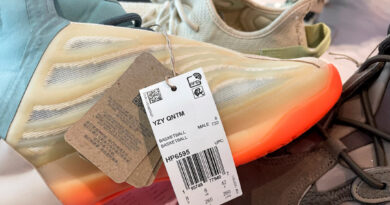FTC Accuses Pharma ‘Middlemen’ of Marking Up Cancer, HIV Drugs
While the middlemen and their affiliates raked in revenue, patients ended up paying more for drugs, the agency said.
Pharmacy Benefit Managers (PBMs) pushed up the cost of some prescription drugs by up to 1,000 percent, according to a recent report from the U.S. Federal Trade Commission (FTC).
This includes drugs used in the treatment of HIV, cancer, and other serious illnesses.
“The Big 3 PBMs’ affiliated pharmacies generated over $7.3 billion of dispensing revenue in excess of their estimated acquisition cost” on specialty generic drugs over the study period, between 2017 and 2022, the report said.
As a consequence, payments made by patients for drugs “steadily increased annually,” said the FTC.
PBMs act as “middlemen” in the pharma industry. They negotiate rebates and discounts with drug manufacturers, transferring these savings to insurance companies. PBMs are also tasked with reimbursing pharmacies for prescriptions.
Specialty drugs are medications aimed at treating less common illnesses such as certain cancers. Generic versions of these drugs are chemically similar to the original brand and are available at a cheaper price.
Some of the drugs analyzed in the report include generic versions of Ampyra, used to treat multiple sclerosis; Sensipar, used in the treatment of renal disease; and Gleevec for leukemia.
Between 2020 and 2022, 63 percent of the drugs dispensed by PBM-affiliated pharmacies were marked up by more than 100 percent over their cost of acquisition, the report said. In addition, 22 percent of the drugs were marked up by more than 1,000 percent.
“The Big 3 PBMs also reimbursed their affiliated pharmacies at a higher rate than they paid unaffiliated pharmacies on nearly every specialty generic drug examined,” the FTC said.
PBM-affiliated pharmacies were found to have dispensed a bigger share of drugs that had markups of more than $1,000 per prescription.
“Dispensing patterns suggest that the Big 3 PBMs may be steering highly profitable prescriptions to their own affiliated pharmacies (and away from unaffiliated pharmacies),” the FTC said.
Between 2017 and 2021, out-of-pocket expenses by patients for these drugs rose at an annual compounded rate of 14 to 21 percent.
The PBMs were also found to have made an estimated $1.4 billion extra from “spread pricing.” This involves PBMs billing the plan sponsors more than what they reimburse to pharmacies for drugs, allowing the middlemen to pocket the difference. Plan sponsors typically are employers who establish a health care plan for their employees.
Hannah Garden-Monheit, director of the FTC’s Office of Policy Planning, said the agency found that the issue of enormous markups for dozens of lifesaving drugs was “growing at an alarming rate, which means there is an urgent need for policymakers to address it.”
This is the second report issued by the FTC on the matter, with the first report published in July 2024.
In an emailed statement to The Epoch Times, Optum defended its practices, saying it was “lowering the cost of specialty medications, which comprises half of all drug expenditures.” In addition, the company was “providing clinical expertise, programs and support for patients with complex and rare conditions,” it said.
“In 2024, we helped eligible patients save $1.3 billion and the median out-of-pocket payment for these patients was $5,” the company said.
The Epoch Times reached out to CVS Caremark and Cigna Express Scripts for comments but did not receive a response in time for publication.
Following the release of the FTC report, Rep. Jake Auchincloss (D-Mass.) called on lawmakers to take legislative action against the harms posed by PBMs.
“It raises premiums for everybody. Today’s Federal Trade Commission report must galvanize Congress to finally end the abuses of drug-pricing middlemen.”
Under the current system, a patient’s choice to buy these drugs is “oftentimes limited to PBM-owned mail-order pharmacies,” he said.
PBMs Push Back
PBMs have rejected claims that their practices harm patients. During a hearing at the House oversight committee in July 2024, industry executives argued that their presence in the drug distribution chain benefited customers.
“That means patients covered by Caremark plans only pay an average out-of-pocket cost of less than $8 for a 30-day supply of medication. And we did the same for brand name drugs—from 2017 to 2022, our proven tools and strategies drove down the net cost of brand name drugs by 15 percent,” he said.
Joyner warned that hampering PBMs’ ability to negotiate lower drug costs would end up benefiting drug manufacturers.
He said Caremark reimburses independent pharmacies at a “higher rate” compared with CVS-owned pharmacies, with a difference as much as 25 percent for generic drugs.
PBMs have “operating profit margins of just 4 percent compared to over 30 percent for drug manufacturers,” he said.





